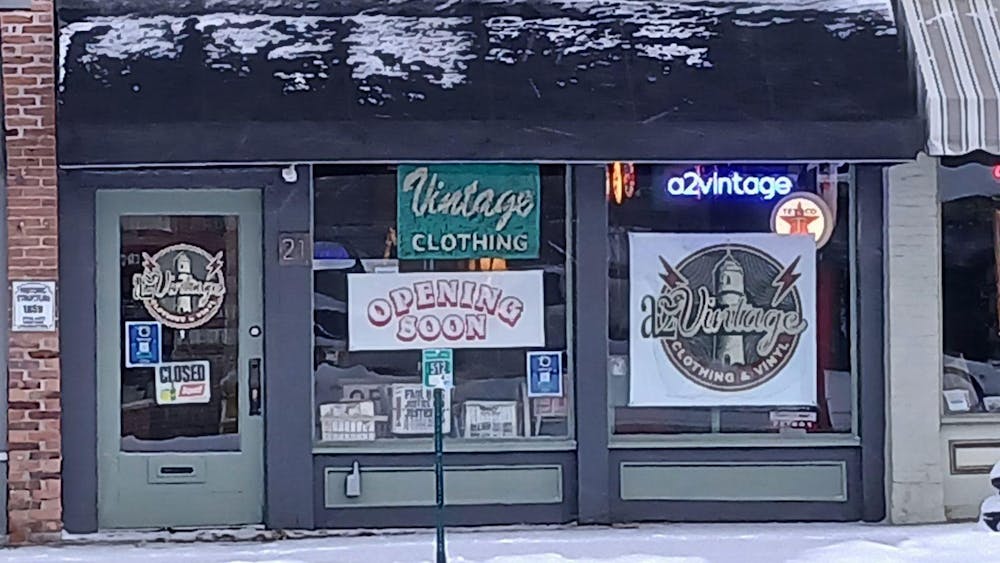This week, the Ann Arbor-based bookstore Borders is expected to file for Chapter 11 bankruptcy. One estimate suggests 50 percent of Borders’ stores will close in the next five years, with 90 percent hanging an “out of business” sign by the end of the decade.
Some of the problems that led Borders to this point were unique to their own situation. Borders never really found a way to match competitors online, and its e-Reader can’t compete in a world of Kindles, Nooks and iPads. A costly stock buy-back program also piled significant debt on the company founded just a few miles from here.
Borders is on life support today because of their own poor management, but other bookstores won’t be far behind in an ever changing world that is using less ink and more pixels.
For now, Barnes and Noble appears to be sound, and plenty of local bookstores are staying afloat; but don’t expect that to last forever.
The first casualty will be the brick and mortar bookstore. There isn’t much debate about that. Even if a strong contingent of “real” book people prevents e-books from taking over the market and pushing hardcovers and paperbacks into the pages of history, physical bookstores won’t be able to compete with the cost saving online wholesaler.
Borders charges more in the store than they do online, and that doesn’t even consider Amazon’s ability to charge even less. There’s just no money to be made in a bookstore that still has shelves.
But we love bookstores. Everyone who likes to read, loves strolling around a bookstore on the path to discovery. There’s something about searching with our eyes that is more appealing than searching with keywords.
How do we reconcile saving money with saving an institution we love? The obvious answer is to spend more money in bookstores and less online. But that idea doesn’t stick. It’s pretty irrational to pay 40 percent more in person for something you could get online from the same company, let alone the 60 percent discount their online competitor offers.
Financially, it is a dying model. There isn’t really anything we can do to reverse the decline aside from paying drastically more every time we need something new to read.
As much as we treasure bookstores, perhaps it’s time to let them go. We shouldn’t be afraid of the coming realignment.
We spoke with our wallets and decided we’d rather save money than take a walk through the “mystery and thriller” section. Maybe that isn’t such a bad thing.
So many of us are now using e-Readers for a lot of different and worthy reasons, perhaps we don’t need quite so many bookstores. There’s a segment of the population that truly likes reading on an electronic device much better and won’t be going back to paper and ink.
Doesn’t that mean we should have fewer bookstores? It certainly does. If fewer people wanted greasy hamburgers, we’d have fewer McDonald’s. More people want to buy books online, which again means we should have fewer bookstores.
Maybe it doesn’t mean we should have zero, but it does mean we should have fewer. These stores were built in a different era and they can’t compete in a world they weren’t prepared for.
It’s a good thing businesses have to evolve to changing times. There should be new businesses starting and old ones closing as they become obsolete.
I like reading on my Kindle far more than I like reading an actual book. I’m thrilled that e-books have become so prominent because I think a lot of good will come from them. This e-reading revolution is going to do wonders to democratize knowledge.
One of the downsides is we’ll lose our favorite brick and mortar bookstores. Saying goodbye is part of life and we should all be a little better at it. We’re losing something we love, but many of us are gaining something even better.
Most of the time, things change for the better. Nothing lasts forever, and it shouldn’t. Sometimes it’s hard to watch because you can’t see what a good thing it is at the time.
This era has had a lot of those moments. We’re watching news, manufacturing and communication change in dramatic ways – so it’s hard to accept one more radical shift in the world we used to know.
You can’t push back the hands of the clock, so we might as well embrace it. There are a lot of things I miss about the past, but most of the time we do get it right.








